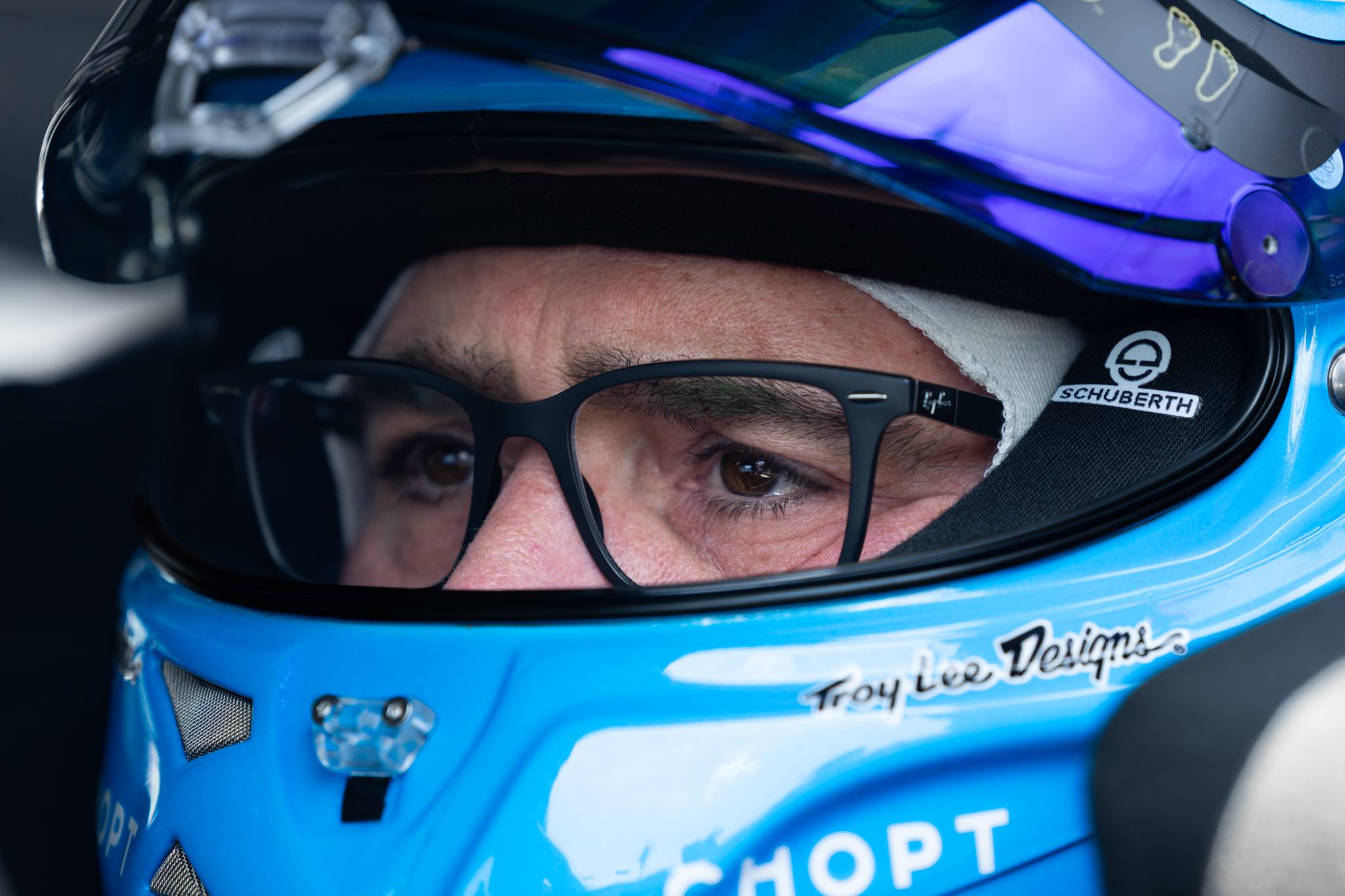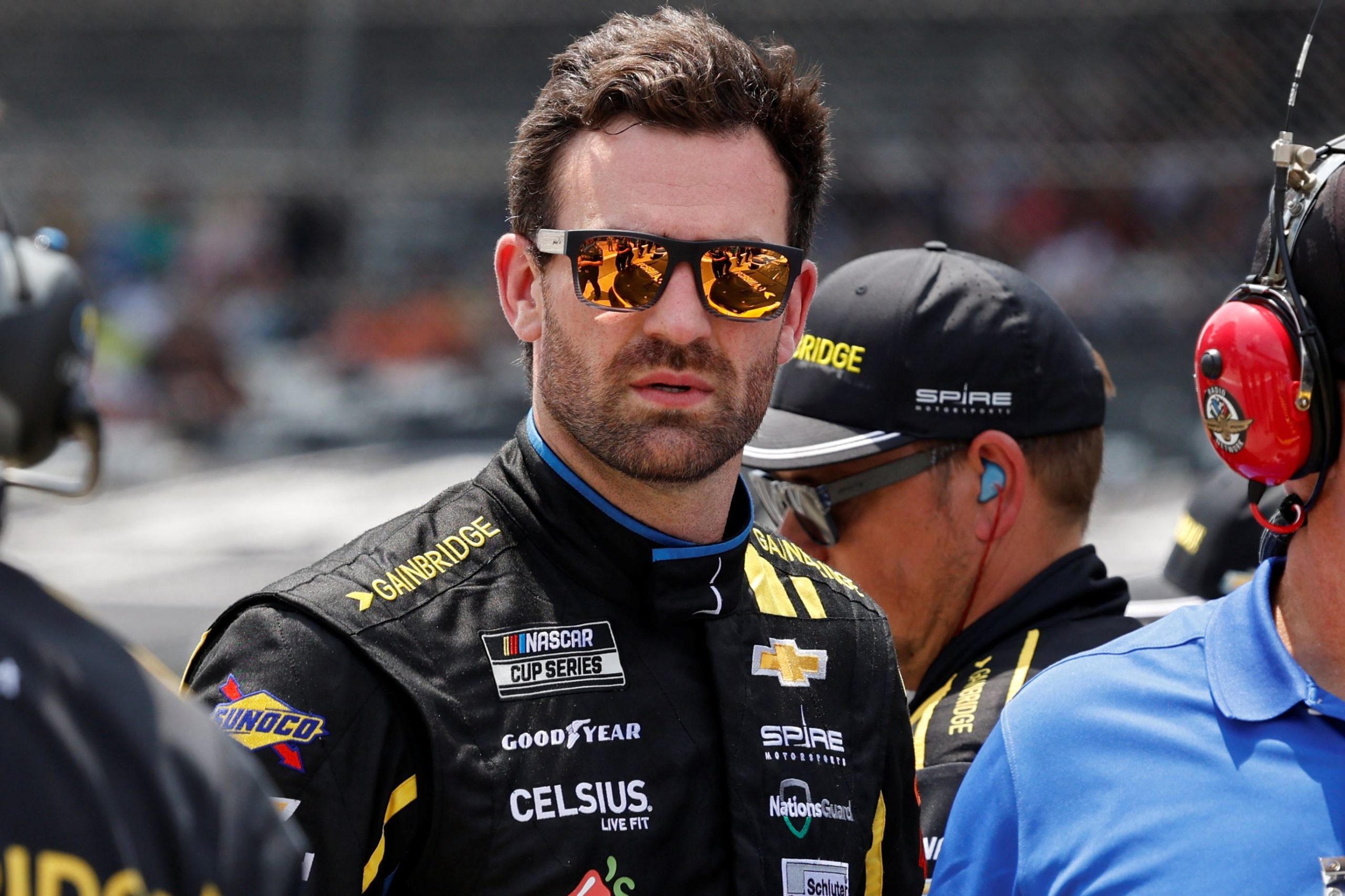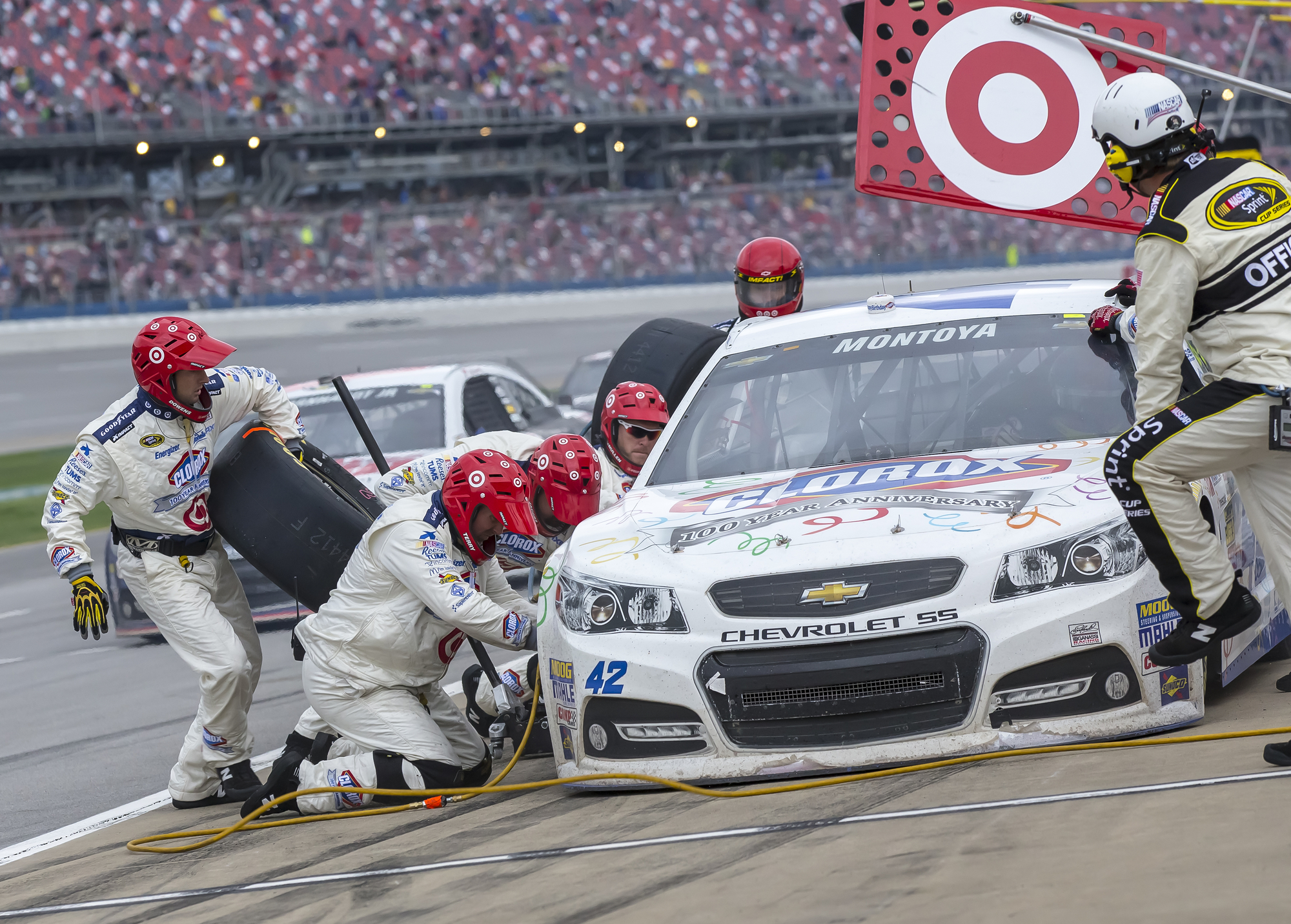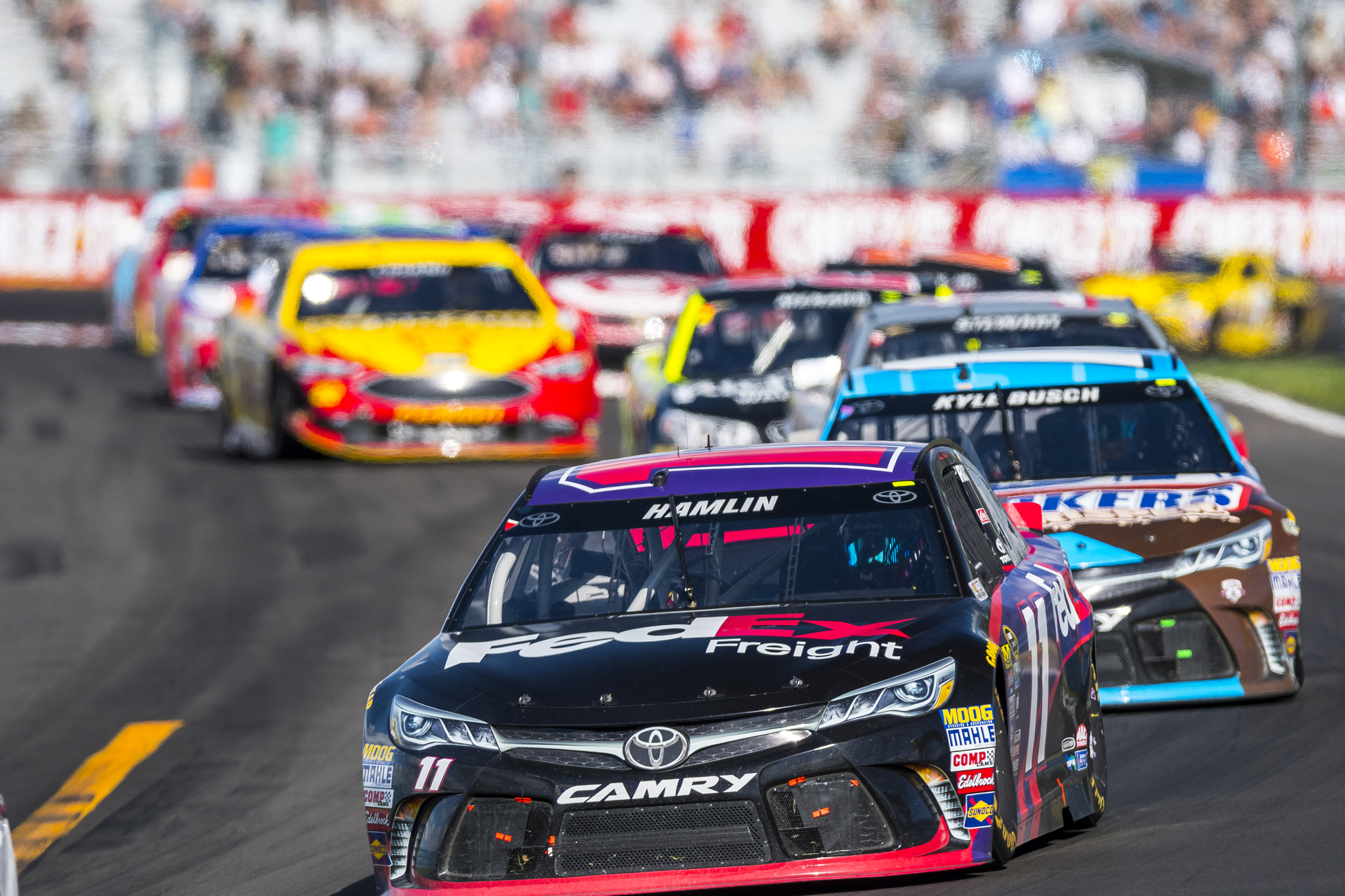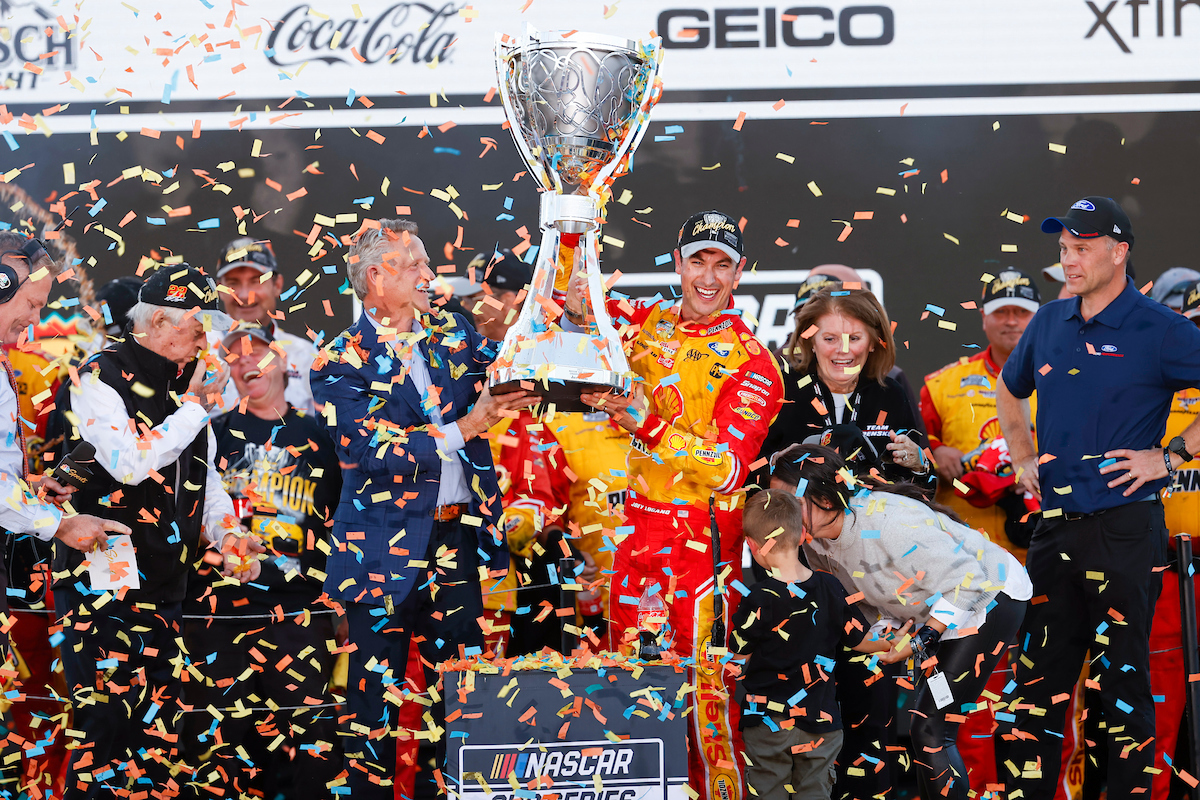How does the Nascar Cup series points work?
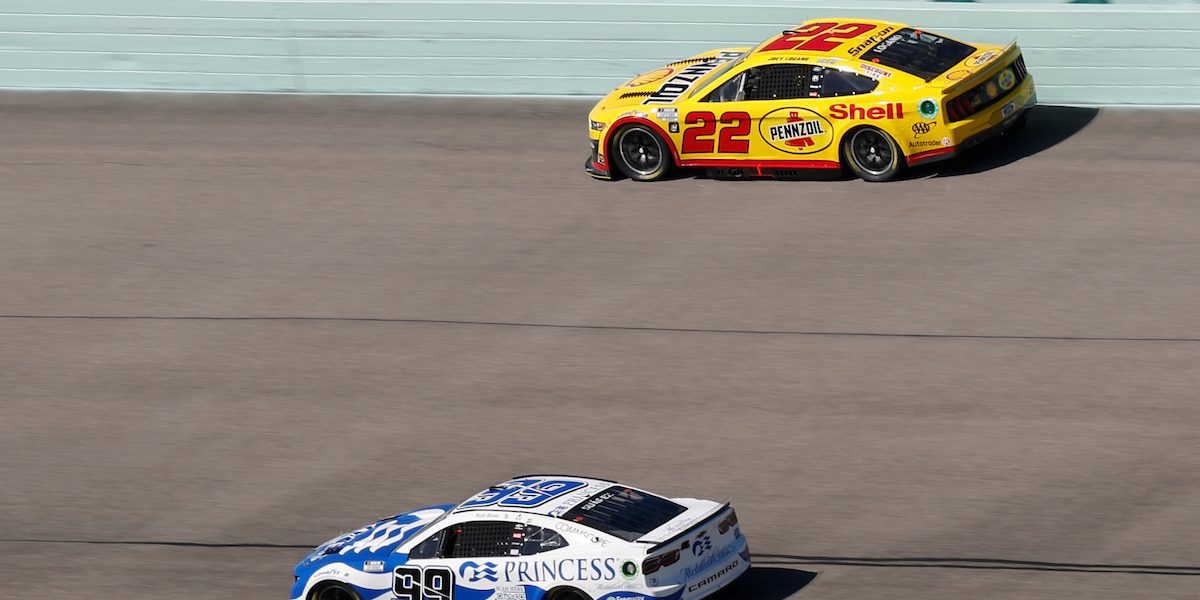
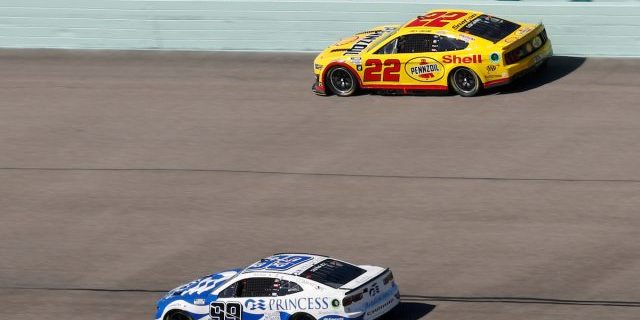
You’re an avid fan of the NASCAR Cup Series or perhaps someone just stepping into the world of motorsports. Either way, you’ve found yourself wondering, “How exactly do the NASCAR Cup Series points work?”
The NASCAR Cup Series employs a complex points system that combines race wins, stage wins, and consistent performance to determine a champion. This system features a playoff series where the top 16 drivers vie for the title.
Table of Contents
In this article
In this article, we’ll break down the complexities of the NASCAR Cup Series points system, explain how drivers earn points, and how these points translate into championships. By the end, you’ll be well-equipped to understand the twists and turns of this thrilling motorsport.
A Detailed Explanation of the NASCAR Cup Series Points System
The Basics: Race Points and Stage Wins
In any given NASCAR Cup Series race, drivers earn points based on their finishing positions. But that’s just the tip of the iceberg. Races are divided into three stages, and drivers can earn additional points by performing well in these individual stages. Stage points are given to the top 10 finishers in each of the first two stages. The third stage, or the final leg of the race, does not offer stage points but instead offers points for the final race standings.
The Points Breakdown
For the final race standings, the winner gets 40 points, the second-place driver receives 35 points, and so on. Stage winners receive an additional point, and the driver who wins the race receives 5 bonus points. These bonus points are valuable and carry over into the playoff series, giving drivers an advantage as they seek the championship.
Playoffs and the Final Push
Once the regular season concludes, the top 16 drivers with the most points, including bonuses, move on to the playoff series. This series consists of three rounds leading up to the championship race. The playoff rounds also follow a points system, but with higher stakes: elimination. Drivers are eliminated after each round until only four remain for the championship showdown.
Points and Penalties
It’s crucial to note that NASCAR can issue penalties, often resulting in a deduction of points. These penalties can occur for various reasons such as rules violations, unsafe maneuvers, or technical infractions. Drivers and teams must be vigilant to avoid these penalties, as they can severely impact their standing in the series.
Here’s everything else you need to understand the nuances of this system.
Related Questions You Might Have Next
How Do Bonus Points Work?
Understanding the impact of bonus points is key to grasping the full scope of the NASCAR Cup Series points system. Bonus points are awarded for stage wins and race wins and can give drivers a significant advantage during the playoffs. For each stage win, a driver receives one bonus point, and for each race win, they get five bonus points. These points are added to the driver’s total playoff points, giving them an edge in the competition.
How Are Points Reset for the Playoffs?
When the regular season concludes and the playoffs commence, points are reset for the top 16 drivers who advance. Each driver starts with 2,000 points, plus any bonus points they have accumulated through stage wins or race wins. This reset ensures that the drivers are on a relatively level playing field while still rewarding outstanding performance in the regular season.
What Happens in Case of a Tie?
Ties in the points standing are relatively rare but can happen. If two or more drivers have the same number of points at the end of a race or a playoff series, the tie is broken based on the number of race wins. If there’s still a tie, then the number of second-place finishes is considered, followed by third-place finishes, and so on until the tie is broken.
More Layers to Unveil
How Do Rookie Drivers Fare in the Points System?
If you’re a newcomer to the NASCAR scene, you might be curious about how rookie drivers adapt to this points system. Rookies are also subject to the same points and rules as seasoned drivers. However, they are eligible for the “Rookie of the Year” award, which is a separate recognition and doesn’t directly affect their points or playoff contention. Nevertheless, a strong performance by a rookie can certainly shake up the standings and make for an exciting season.
Is There a Points System for Teams?
Yes, there’s also a Team Championship in the NASCAR Cup Series. Teams earn points in much the same way individual drivers do. However, the Team Championship is calculated separately and doesn’t affect the driver’s championship. This dual system allows for various strategic moves, like switching drivers during the season to improve the team’s standing.
How Has the Points System Evolved?
The NASCAR Cup Series points system hasn’t always been this complex. Over the years, it has undergone various changes to make the sport more competitive and engaging for fans. Earlier, the system was much simpler, focusing solely on race wins and finishing positions without stages or playoffs. The introduction of the stage-based system and playoffs has added new layers of strategy and excitement to the sport.
How does the Nascar Cup series points work? – Final Thoughts
By now, you should have a comprehensive understanding of how the NASCAR Cup Series points work. From race points to stage wins, from playoffs to penalties, it’s a multifaceted system designed to reward consistency, skill, and strategic brilliance. Keep this guide handy as you watch the next race, and you’ll find yourself immersed in the intricacies of this thrilling sport. So gear up, the race to understand NASCAR just got a whole lot more exciting.
How does the Nascar Cup series points work? – Frequently Asked Questions (FAQ)
Can drivers lose points for behavioral issues?
Yes, drivers can lose points for behavioral issues, including unsportsmanlike conduct, both on and off the track.
How do stage lengths vary from track to track?
Stage lengths can vary depending on the track and are usually announced before the beginning of the season or specific race.
Is there a minimum number of races a driver must participate in to qualify for the playoffs?
Generally, a driver must attempt to qualify for every race to be eligible for the playoffs, but exceptions can be made due to medical reasons or other extenuating circumstances.
What happens if a race is rained out?
If a race is rained out, NASCAR will attempt to reschedule. If more than half the race has been completed before the interruption, the race may be considered official, and points are awarded based on the standing at the time of the stoppage.
How do doubleheader weekends affect points?
In the case of doubleheader weekends, each race is treated as a separate event for points allocation.
By tackling these frequently asked questions, you’ll be even more well-versed in the complexities of the NASCAR Cup Series points system. Whether you’re a seasoned fan or new to the sport, understanding the rules makes the races that much more engaging. Happy watching!

